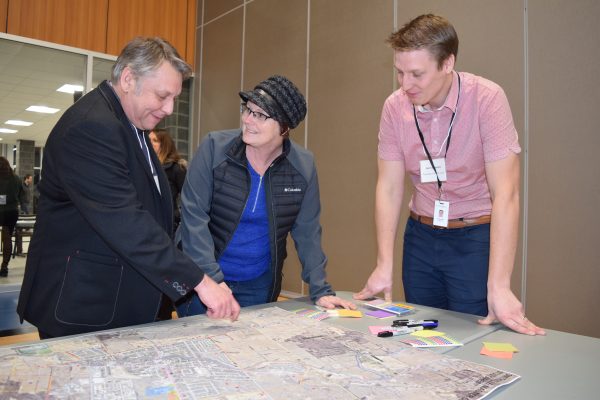
By Tristan Marks
NewsNow
Although still in the early stages, the Township of West Lincoln is planning on expanding the urban boundaries of Smithville.
The Township held a Public Information Centre (PIC) at the West Lincoln Community Centre last Thursday regarding its Smithville Master Community Plan (MCP). This meeting was the first in a series of what will be four PICs that will occur at different points in the creation of the MCP.
Visitors were initially invited to listen to a half hour presentation given by consultants that explained various aspects of the MCP from the timeline to various important studies. Consultants said the entire process, which started in 2019, would take close to two years to be completed.
The MCP will study 425 hectares of land beyond Smithville’s current 479 hectares. The studies will examine various considerations such as agricultural impact, archeological assessment, water and wastewater system expansion and a study of Smithville’s Twenty Mile Creek sub-watershed. The plan will also consider building an east-west bypass to the south to ease projected traffic strain in the future.
After the presentation, visitors were divided up into a number of small groups, each moderated by one of the project consultants. At these groups, residents were asked for their opinion of what the MCP should bring to Smithville.
During these small group sessions, residents shared their concerns about ensuring Smithville keeps its small town character.
“You don’t want to let growth get away from us,” said Smithville resident, Richard Howey. “You want to be able to recognize the place.”
Others said they do not want Smithville to “become another bedroom community,” and called for the plan to include business infrastructure.
The list of concerns and suggestions also included preserving Smithville’s natural heritage, creating new spaces for public events and gatherings, and enhancing trails in the area’s existing parks.
The proposed urban boundary extension could help Smithville expand to a population of 20,000.
The township’s consultants explained that all the studies will be indirectly funded through the town by local landowners’ groups who stand to recoup the expenditure if their lands are approved for urban development.

